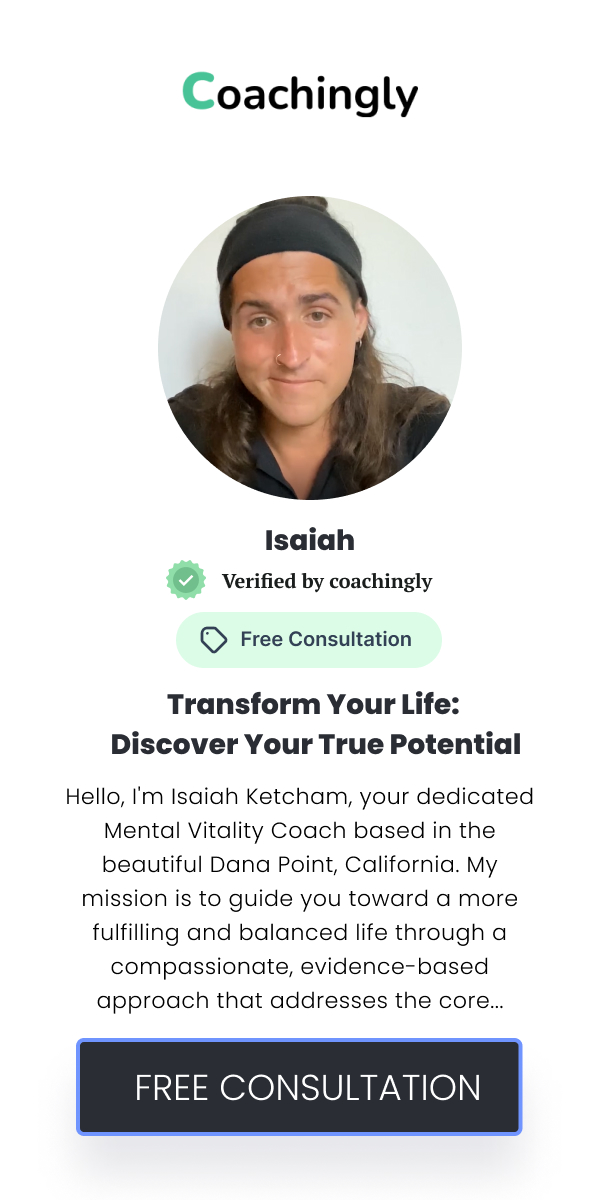
The Role of Core Beliefs in Mental Health: Identifying and Overcoming Limiting Patterns
Isaiah Ketcham
![]() August 28, 2024
August 28, 2024
Core beliefs are fundamental convictions that shape our understanding of ourselves, others, and the world around us. These beliefs are typically formed early in life and are deeply ingrained in our subconscious. They act as a lens through which we interpret our experiences and can significantly influence our emotional and psychological states. Core beliefs can be either positive, such as "I am capable and worthy," or negative, like "I am not good enough." The formation of these beliefs is influenced by various factors, including childhood experiences, cultural background, and personal interactions. While positive core beliefs can foster resilience and well-being, negative ones can create barriers to personal growth and happiness. Understanding the nature and origin of these beliefs is essential for addressing their impact on mental health. Negative core beliefs can profoundly affect mental health, often leading to issues such as anxiety, depression, and persistent self-doubt. When an individual holds a limiting belief, such as "I am unlovable," this belief can distort their perception of reality and lead to negative emotional responses. These distorted beliefs often result in a cycle of negative thinking and maladaptive behaviors. For instance, someone who believes they are unworthy may struggle with low self-esteem and avoid situations where they might be judged. This can create a feedback loop where the individual's behavior reinforces their negative belief, further impacting their mental well-being. The cognitive-behavioral aspects of these beliefs mean that they influence how we think, feel, and act, affecting our overall emotional state and quality of life. Addressing these beliefs is crucial for improving mental health and achieving a balanced and fulfilling life. Recognizing and understanding personal core beliefs requires introspection and self-reflection. Engaging in self-reflection involves examining one's thoughts, feelings, and behaviors to identify recurring patterns and underlying beliefs. Tools such as journaling, mindfulness exercises, and cognitive behavioral techniques can be instrumental in uncovering these deep-seated beliefs. For those struggling to identify their core beliefs independently, seeking guidance from a mental health professional can be beneficial. Mental health coaches are trained to help individuals explore and understand their core beliefs, providing insights that might be difficult to achieve alone. Professional support can also offer strategies for challenging and changing these beliefs, facilitating a more constructive approach to personal development. Identifying and addressing limiting beliefs is a critical step towards enhancing mental health and achieving personal goals. Overcoming limiting core beliefs involves several strategies aimed at reframing negative thoughts and fostering positive change. One effective method is cognitive restructuring, which involves challenging and replacing negative beliefs with more balanced and constructive ones. This process includes identifying irrational or unhelpful thoughts, questioning their validity, and developing healthier alternatives. Behavioral changes also play a crucial role in overcoming limiting beliefs. By setting and pursuing personal goals that align with new, positive beliefs, individuals can shift their behaviors and reinforce their evolving mindset. Continuous self-assessment and self-improvement practices are essential for maintaining progress and adapting beliefs as needed. Engaging in self-care activities, seeking ongoing support, and embracing personal growth opportunities further support this transformative process. These strategies collectively contribute to a more positive and fulfilling life. A mental health coach plays a pivotal role in helping individuals identify and overcome limiting core beliefs. Through personalized coaching sessions, clients receive targeted support and guidance tailored to their unique needs and circumstances. Coaches utilize various techniques to help clients explore their core beliefs, challenge negative patterns, and develop healthier perspectives. This tailored approach ensures that individuals receive the specific tools and strategies needed to achieve their mental health goals. The support of a mental health coach fosters resilience and empowerment, enabling clients to make meaningful changes in their lives. By working with a coach, individuals gain access to expert insights and practical solutions that facilitate long-term transformation. This collaborative process enhances the likelihood of sustained personal growth and overall well-being.Understanding Core Beliefs
How Core Beliefs Influence Mental Health
Identifying Limiting Core Beliefs
Strategies for Overcoming Limiting Core Beliefs
The Role of a Mental Health Coach in Transforming Core Beliefs

Recent Articles
The Path to a Fulfilling Life: Combining Mental Health and Holistic Wellness Strategies
Mental health and holistic wel...
![]() Sep 06, 2024
Sep 06, 2024
Overcoming Negative Core Beliefs: Shifting Your Mindset for Lasting Change
Negative core beliefs are deep...
![]() Sep 05, 2024
Sep 05, 2024
Mental Vitality and Emotional Balance: A Comprehensive Approach to Wellness
The Importance of Mental Vital...
![]() Sep 04, 2024
Sep 04, 2024
Navigating Life Transitions: A Guide to Mental and Emotional Resilience
Understanding Life Transitions...
![]() Sep 03, 2024
Sep 03, 2024
The Power of Positive Change: Breaking Free from Self-Sabotaging Behaviors
Understanding Self-Sabotaging ...
![]() Sep 02, 2024
Sep 02, 2024
Life After Divorce: Steps to Rebuild and Flourish in Your New Chapter
Divorce often signifies a prof...
![]() Sep 01, 2024
Sep 01, 2024
Navigating Relationship Challenges: How Coaching Can Help Couples Communicate Effectively
Understanding the Importance o...
![]() Aug 31, 2024
Aug 31, 2024
Couples Coaching for Lasting Love: Rebuilding Trust and Intimacy in Relationships
Understanding the Role of Coup...
![]() Aug 30, 2024
Aug 30, 2024
From Stress to Success: Managing Anxiety with Holistic Wellness Practices
Understanding Anxiety and Its ...
![]() Aug 29, 2024
Aug 29, 2024
Restoring Balance: How Holistic Coaching Supports Your Mental, Physical, and Emotional Well-being
In today's fast-paced world, a...
![]() Aug 27, 2024
Aug 27, 2024
The 90-Day Human Resilience Intensive: Your Path to Emotional and Physical Well-being
Understanding the 90-Day Human...
![]() Aug 26, 2024
Aug 26, 2024
Empower Your Journey: How Coaching Supports Personal Growth and Fulfillment
Understanding Coaching and Its...
![]() Aug 25, 2024
Aug 25, 2024
Creating Healthy Boundaries: How to Protect Your Mental Health in Relationships
Understanding Healthy Boundari...
![]() Aug 24, 2024
Aug 24, 2024
Achieving Mental Clarity: The Connection Between Wellness and Emotional Health
Understanding Mental ClarityMe...
![]() Aug 23, 2024
Aug 23, 2024
Transformative Success Stories: Real Lives Changed by Holistic Coaching
Holistic coaching represents a...
![]() Aug 21, 2024
Aug 21, 2024
Holistic Health 101: Integrating Mental, Emotional, and Physical Wellness for a Balanced Life
Understanding Holistic HealthH...
![]() Aug 20, 2024
Aug 20, 2024
How Accountability in Coaching Drives Sustainable Personal Growth
Understanding Accountability i...
![]() Aug 19, 2024
Aug 19, 2024
Transforming Relationships: Tools to Strengthen Communication and Connection
Understanding the Importance o...
![]() Aug 18, 2024
Aug 18, 2024
Healing from the Past: How to Overcome Emotional Wounds and Build a Better Future
Understanding Emotional Wounds...
![]() Aug 17, 2024
Aug 17, 2024
Rediscovering Yourself: How to Rebuild Confidence and Self-Worth Post-Divorce
Embracing the Journey of Self-...
![]() Aug 16, 2024
Aug 16, 2024
Breaking Free from Toxic Relationships: A Holistic Approach to Healing and Growth
Understanding Toxic Relationsh...
![]() Aug 15, 2024
Aug 15, 2024
Rebuilding After a Toxic Divorce: Steps to Reclaim Your Life and Thrive
Acknowledging the Impact of a ...
![]() Aug 14, 2024
Aug 14, 2024
Unlocking Your Potential: How Holistic Wellness Coaching Can Transform Your Life
Understanding Holistic Wellnes...
![]() Aug 13, 2024
Aug 13, 2024
